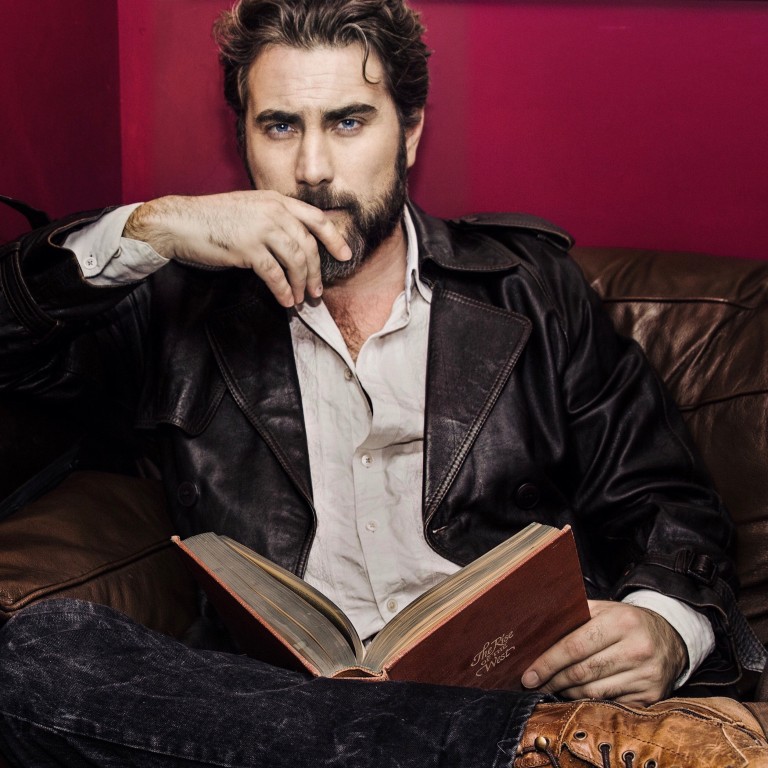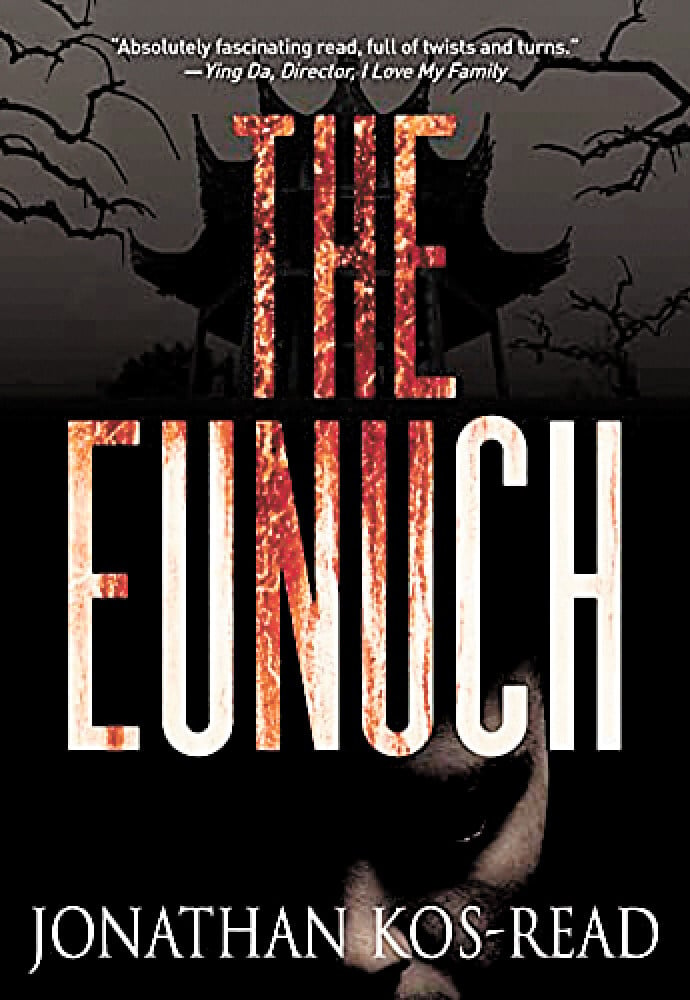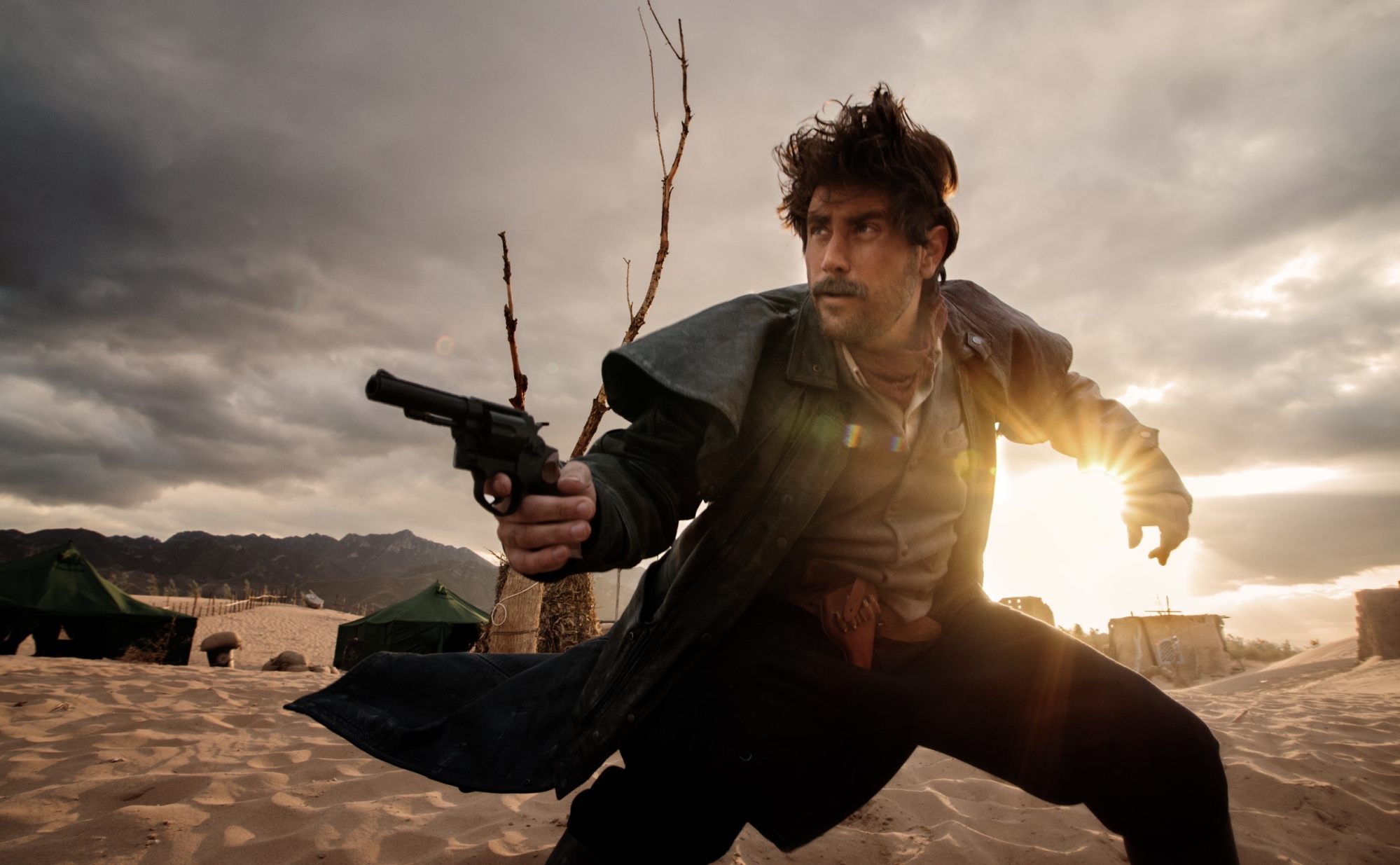
China’s leading foreign actor on his first book, The Eunuch, and getting to grips with the ruthless Chinese film industry
- Jonathan Kos-Read, aka Cao Cao, would have had no trouble drawing on his time in China’s movie biz to evoke the treacherous atmosphere in his imperial whodunit
- He talks about screenwriting, being ‘erased’ from productions early in his career and how he was so shy as a child he hid in bushes before class
Jonathan Kos-Read has built a successful life by making seemingly unpredictable decisions. In 1997, he swapped New York for Beijing, despite knowing hardly any Mandarin, even fewer people and with little in the way of a plan. He auditioned for a low-budget movie, Mei Shi Zhao Shi (Looking for Trouble), on the strength of an advertisement in an English-language newspaper and a teenage love of acting. From such random choices has grown fame. Known across mainland China as Cao Cao, Kos-Read is “by far the leading foreign actor working in the country”, according to The New York Times.
Speaking from his current home, in Barcelona, Spain, the 48-year-old distils these crazy twists of fate into one pithy sentence: “I always wanted to live my life like a character in a novel.”
The analogy is more than appropriate, because Kos-Read has performed another left turn and written his first work of fiction. The result is, as you might expect, pleasingly unexpected. Titled The Eunuch, the story begins with the murder of a seemingly junior concubine in the court of the young Jin emperor Xizong. The investigation is assigned to a quietly clever courtier named Gett, the titular eunuch who must solve a devilish locked-room mystery while navigating Byzantine court politics, where finding the truth can get you killed.
Kos-Read does an impressive job of evoking the treacherous atmosphere of the Jin hierarchy, which he regards as a somewhat neglected part of China’s history. “Like any high-level organisation, where there’s a lot of money, a lot at stake and everybody is really f***ing smart, there are only so many spots at the top. The people there are so good, they will erase you before you even know what you did wrong.”

The portrait owes much to Kos-Read’s research, but it seems he also drew on his own encounters with ruthless elites. “I work in show business at a reasonably high level, where the deals are big and the egos are big.” The names are big, too: Kos-Read has worked alongside Donnie Yen Ji-dan, Aaron Kwok Fu-shing, Kelly Lin Hsi-lei, Chen Kun, Angelababy and Mike Tyson.
For less starry character actors such as Kos-Read, there were rules to be learned and followed. “I got erased from productions early on because I couldn’t see the silent machinations going on around me. I slowly learned how to do it – how every single word matters.”
Tokyo Junkie: how Japan’s capital has changed in the past six decades
Kos-Read is quick to distinguish working under the threat of death in ancient China from the comparative comforts of his own profession. “In the world that I live in, I’m not going to die, right?” But it does seem that Gett’s struggles to decipher the slippery rules of the imperial court were inspired by Kos-Read’s faltering initiation into China’s film industry. “It’s not like China is so different from anywhere else, but there are differences. As an American guy, learning that in a Chinese setting was hard. It’s not like I grew up in that culture. I had to learn it from zero when I arrived at 23 or 24 years old.”
Kos-Read’s conversation is punctuated by anecdotes that emphasise challenges accepted and overcome. Related with a winning mixture of bravado and insecurity, they coalesce into something like a personal philosophy: “Drop myself into the deep end and swim.” An early example was conquering his “pathological” shyness. “You know the deal,” he says. “Shy kid. Picked on. You find happiness in books. It’s cliché, but that was me.”
The thought of a timid Jonathan Kos-Read might seem strange to anyone who has seen him acting the crass American on screen or playing the fool in Cao Cao Lai Le (Here Comes Cao Cao), his recurring slot on a Sunday television show. But according to Cao Cao himself, he was “shy to the point where I couldn’t go into the classroom at the same time as the other kids. I would hide in the bushes, then sneak in when they were paying attention to the teacher.”

Kos-Read’s solution was characteristically simple and drastic. He decided to take an acting class, although his anxiety wasn’t eased by the audition piece: a Shakespearean monologue. “I got up and I was terrified. I’d never been so afraid before in my life.” And then suddenly everything changed. “I started the monologue and it all went away. For the first time, I wasn’t shy. Because it wasn’t me. It was a character.” Almost as startling was the discovery of some bona fide talent. “I was good at it. Not like Robert De Niro or Daniel Day-Lewis, but in my high school I was good. And people recognised it. It was a great moment in my life.”
It says a lot for Kos-Read’s resilience that he learns from failure as well as triumph. The path to writing The Eunuch, for example, was littered with several unsuccessful screenplays, which were read by a grand total of three people: “My best friend, a producer and my mother.” It taught Kos-Read the value of books. “A script is not the finished product. It is the instruction manual for the finished product. Nobody is going to read it, even if you write Ben-Hur or Indiana Jones. After my second script, I said, ‘F*** that, man. I’m going to write the final product.’”
Screenwriting taught him something even starker. “Always and everywhere – in Hollywood, Bollywood, and Chinawood – most scripts are bad,” he says. “Most scripts don’t rise to the level of basic competence. For the last 20 years, the main analytical problem of my professional career has been: ‘What’s wrong with this script?’ and ‘How do I fix it?’”
Kos-Read includes his own screenplays in this withering assessment, and hopes their shortcomings have improved The Eunuch. “This book charts a very narrow course in trying to avoid every single error I have seen in stories written by other people,” he says, then laughs. “I know that is going to sound incredibly arrogant. I’ll take the heat on that.”
Writing The Eunuch was enjoyable enough for Kos-Read to begin a welcome sequel. A second novel will have to compete with the many demands on his time: his wife, Li Zhiyin (whom he met not long after arriving in Beijing), and two daughters, Roxanne and Persephone, his passion for philosophy and photography, and his successful sideline as an online influencer. More than 5 million people follow Cao Cao on video app Douyin, all “middle-aged dudes” who listen to his thoughts on “depression, midlife crisis and what to do when your teenage daughter wants their tongue pierced”. And, of course, there’s his day job as an actor, which means jetting between China, Spain and America.
Having lived in Beijing longer than his Californian birthplace, Kos-Read calls himself an American-Asian. Where is home right now? “I am going to say something really lame. What I’ve learned from living in different cultures is, wherever my wife and my kids are, wherever I can go out for a steak and a beer, find some writer friends, some philosophy friends, some photography friends, anywhere I can do that is home.”

